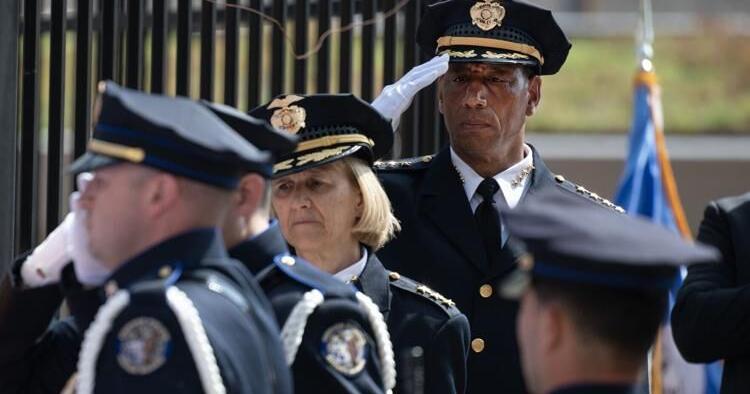The Democratic Socialists of America not only want Israel to back off of its fight against terrorists — they also want Denver to do the same against common criminals.
Hence, an unsuccessful — but eye-opening — assault staged this week on the Denver police budget by a rookie council member who was elected last spring with the endorsement of the DSA’s Denver chapter. At a time when the city least can afford it, three budget amendments proposed by at-large council member Sarah Parady and supported by fellow DSA-endorsed council newcomer Shontel Lewis would have gouged some $4 million out of the police budget.
The good news is the council majority swatted down two of the amendments in 9-4 votes on Monday, and Parady withdrew the other from further consideration, no doubt after assessing the odds against her. So, wiser heads prevailed.
Yet, the proposals and the ensuing council debate served as a potent reminder that the reckless “defund police” movement isn’t dead yet. It continues to lurk on the political fringe. And it remains ready to pounce, claiming law and order — and common sense — as its prey.
It would be all the more troubling to see the anti-law enforcement dogma make a comeback in Colorado, which continues to reel from an epic crime wave. And Parady’s anti-cop foray was especially tone deaf given its timing. As District 2 council veteran Kevin Flynn reminded his colleagues, they were taking up the issue following a weekend in which nine people were shot, and two killed, in two separate incidents in the city.
“This is not the time to stop hiring police officers,” Flynn said in response to one of Parady’s amendments that would have diverted funds from training new cops.
An incredulous Flynn pointed out, “Every neighborhood in this city has asked for more police.”
“If we don’t make up lost ground, we are going to be in a world of hurt,” he said.
Parady insisted her attempted amendments to Mayor Mike Johnston’s proposed budget weren’t about anti-cop “ideology” but rather an attempt to spend the money more effectively.
Yet, the intended beneficiary of all three amendments was a homeless-services program that neither had requested the additional funding nor currently had the capacity to use it. Which suggests, of course, the amendments were in fact driven by an anti-cop agenda.
The city health department’s Support Team Assisted Response, or “STAR,” program has earned deserved praise for providing help to people on the streets experiencing a mental health crisis. But by design, it has nothing to do with law enforcement. Its purpose is to assist people who are believed to pose no threat to others.
As the council majority seemed to conclude during the discussion, STAR may warrant more funding in the future, but robbing the cops was the wrong way to do it. District 4 council freshman Diana Romero Campbell wisely suggested Denver’s “robust philanthropic community” could be a good place to turn for future investment in STAR.
The last thing Denverites need is an about-face as their city attempts to turn the corner in the crime fight. The city needs well-funded police — and new recruits — urgently.
Parady’s council peers were too kind to say it, so we’ll be more blunt: Parady needs to get a clue. That goes for Lewis as well as council members Serena Gonzales-Gutierrez and Stacie Gilmore, who also voted for the amendments.
Their constituents want to put the “safety” back into public safety. That means fully funded police.




























/cdn.vox-cdn.com/uploads/chorus_asset/file/25739950/247386_Elon_Musk_Open_AI_CVirginia.jpg)



